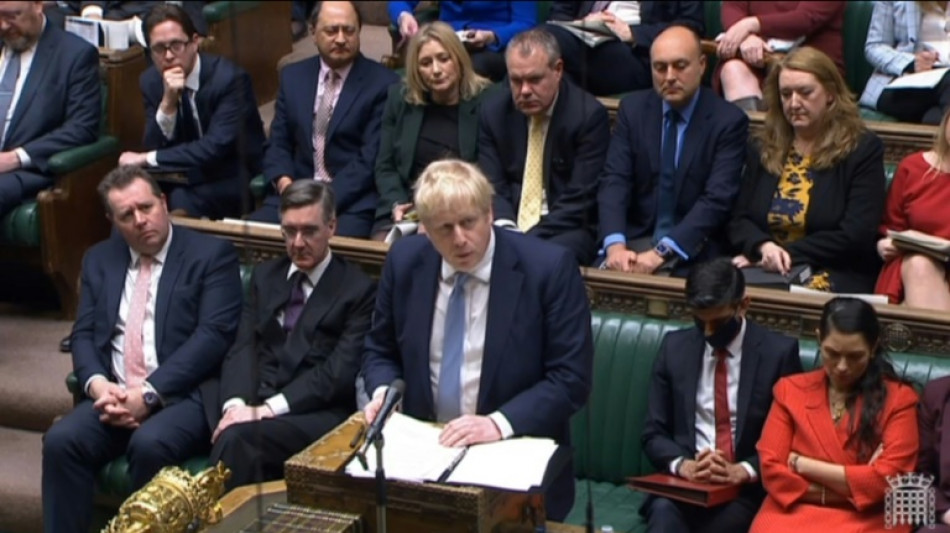

England could end Covid isolation requirement by March: Johnson
England will scrap the legal requirement to self-isolate after testing positive for Covid-19 later this month if infection levels remain stable, Prime Minister Boris Johnson unexpectedly announced Wednesday.
The proposed move would be one of the most dramatic easings of coronavirus rules taken by any country so far in the pandemic, as Johnson doubles down on a strategy of trying to "live with Covid".
However it is likely to prove controversial, with health experts warning much of the world still needs to be vaccinated and UK opposition politicians asking whether the government's scientific advisers support the planned change.
Johnson, dogged by revelations of apparent breaches of the Covid rules at Downing Street that have led to calls for him to quit, had earlier said he aimed to end the self-isolation rules on March 24.
But addressing lawmakers before parliament goes into recess on Thursday until February 21, he said he would bring the change forward by a month, to cheers from hordes of his fellow Conservative MPs who have grown increasingly weary with the restrictions.
"It is my intention to return on the first day after the half-term recess to present our strategy for living with Covid," Johnson told parliament.
"Provided the current encouraging trends in the data continue, it is my expectation that we will be able to end the last domestic restrictions -- including the legal requirement to self-isolate if you test positive -- a full month early."
Johnson's spokesman later told reporters it was justified by falling case numbers and hospitalisation rates but noted the law to self-isolate could be reimposed promptly in response to a dangerous new variant.
- 'Burden of disease' -
The UK government only has responsibility for health policy in England, with devolved administrations in Scotland, Wales and Northern Ireland setting their own rules.
England lifted almost all coronavirus restrictions in late January that had been reimposed in early December to tackle the Omicron variant, with masks no longer required in enclosed places and vaccine passports shelved.
That came weeks after the government cut the minimum self-isolation period for those with Covid-19 from seven to five days to help boost economic activity.
Meanwhile, it has been gradually easing rules around international travel, with the need for fully vaccinated travellers to test for Covid-19 before or after arriving in the UK set to end later this week.
The number of positive Covid-19 cases has fallen sharply since the new year. Although still at high levels, the figures have kept falling in the weeks following the easing of the measures.
The government announced 66,183 new infections on Tuesday, as well as 314 new deaths from the virus, taking the country's total toll to nearly 159,000 -- one of the highest in Europe.
Ahead of Johnson's unexpected announcement, Bruce Aylward, senior advisor to the World Health Organisation director-general, warned that Covid-19 numbers globally are still "absolutely staggering".
"What we're learning to live with is not just this virus, but what should be an unacceptable burden of disease, an unacceptable number of deaths every single day," he told BBC radio.
Aylward urged Western countries such as Britain to step up investment in the global vaccination efforts.
L.Hoffmann--LiLuX



